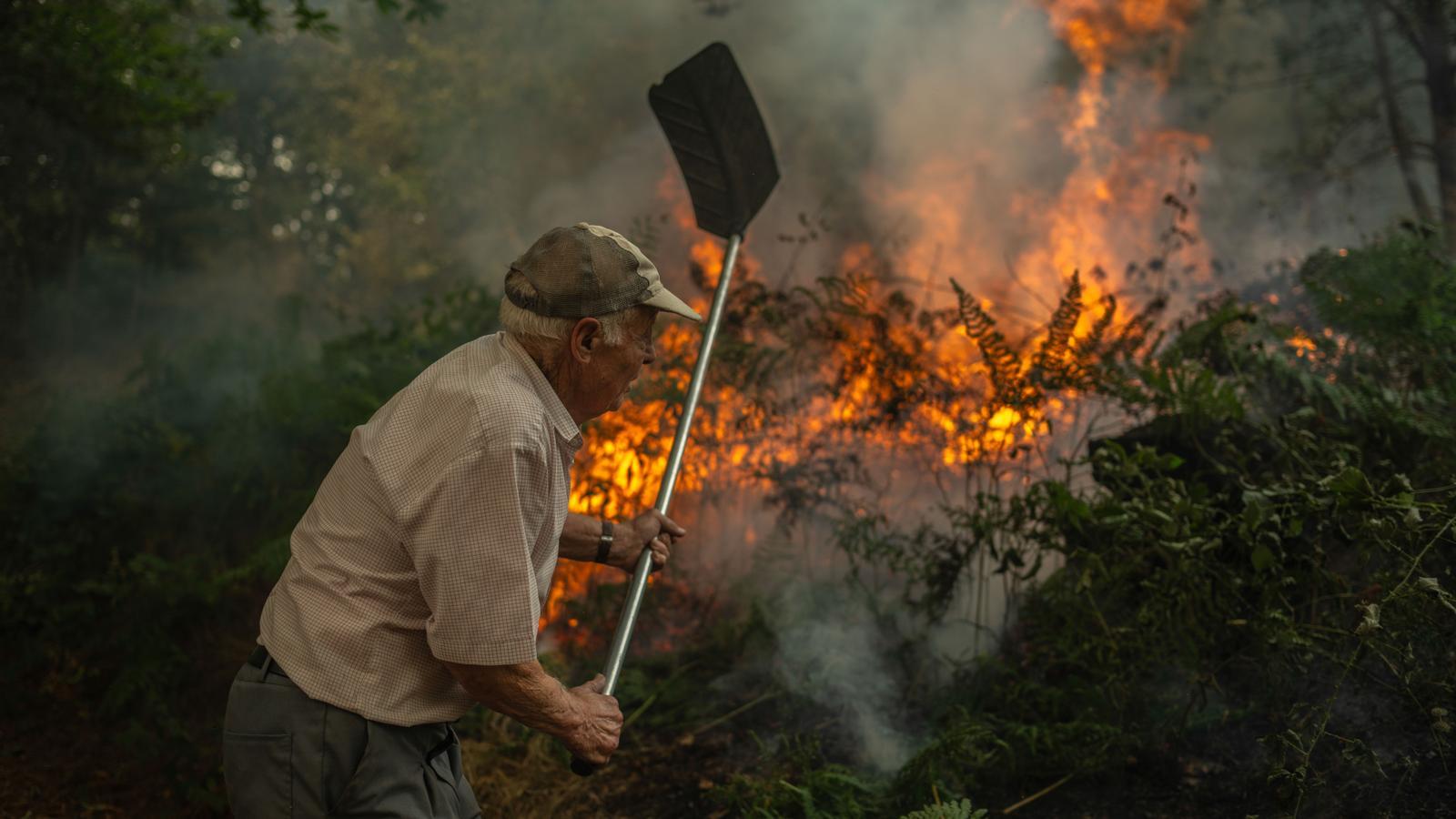

Spain burnsThe chain of simultaneous fires in Galicia, Castile and León, the Community of Madrid, Andalusia, Extremadura, and Valencia is overwhelming firefighters and adding to the already complex political climate. The real fire and the metaphorical political fire are feeding off each other. The fratricidal struggle between the right and the left has found its way into this episode of forest fires. another reason for overheatingIn this politically fractured Spain, everything is exploited, even scorched earth. Even in cases of natural disasters like this, Spanish politics makes no concessions, no respite.
Faced with fires in autonomous regions governed by the People's Party (PP), the socialist state government has come forward to delve into poor management. There are certainly reasons to point the finger at the sore spot. But methods, like those of Transport Minister Óscar Puente, often betray intentions. It is evident that the simultaneous nature and virulence of the fires have caught emergency teams in some regions off guard, forcing them to request assistance from the central administration due to a lack of personnel. Legitimately, therefore, the Moncloa should have initially limited itself to emphasizing its decisive and necessary collaboration, which already highlights, in itself, the possible shortcomings in firefighting—and very likely also in prevention—of those with direct regional responsibility.
Because, indeed, and especially in Castile and León, but also in Galicia, many of the citizens affected by the flames have pointed out the precarious conditions under which the firefighters who depend on the regional government are working. The death of a volunteer, the various serious injuries, and the images of residents on the front lines putting out the fire with precarious means—for example, in Pareisás, Ourense—are unbecoming of an advanced country. The impact is enormous, with thousands of people evacuated and evidence that the situation remains out of control on several fronts, where the overwhelmed firefighters are arriving late. It's true that, with climate change and the resulting extremely high temperatures, the fires are becoming more virulent and unpredictable. But now this remains an oft-repeated mantra: It can't keep coming back. Something isn't being done right. Not at all right.
And it's not so much a matter of politicians being on the front foot, or on the back foot, from the very beginning—which is also true: those who aren't there when they should be are exposed—but above all, ensuring that public firefighting policies are solid, long-term, with adequate budgets and personnel, and not just during the warmer months. By now, it's well known and repeated that fires are put out by working in the forests in winter. And that citizen education is also crucial. In Catalonia, it seems we've learned our lesson, but we can't let our guard down.
In the regions now affected in Spain, lives have been put at risk, tens of thousands of hectares of rural land have been burned (crops and forests; also UNESCO-protected heritage sites, such as the area surrounding the Roman site of Las Médulas), and economic losses in the countryside. Climate change requires the utmost responsibility and collaboration between administrations. Fire is not to be trifled with.
